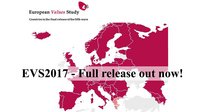| Liebe Leser*innen, auch im Monat September gab es zahlreiche Neuigkeiten, die wir Ihnen hiermit gebündelt zusammenfassen möchten. Viel Spaß bei der Lektüre! Ihre Redaktion
| Dear readers, in the month of September there were numerous news, which we would like to summarize for you. Enjoy reading! Your editorial staff
| Events GESIS Spring Seminar 2021 goes online – Causal Inference We are excited to announce the program of the 50th GESIS Spring Seminar, the first one to be held virtually. Taking place from 1-19 March 2021, the Spring Seminar will offer three courses on causal inference. Registration will open soon, so make sure to check our website or follow us on Twitter for future updates.
| Meet the Experts The new one-hour online series "Meet the Experts" (Thursdays, 1-2 p.m.) provides an overview of different procedures and best practice methods of survey research to help you achieve the best possible data quality [only in German] Check out the program
|
| | Meet the Experts: Best-Practice-Methoden in der Umfrageforschung Im Rahmen der jeweils einstündigen Online-Reihe “Meet the Experts” (donnerstags, 13-14 Uhr) erhalten Sie in den kommenden Wochen einen Überblick über unterschiedliche Verfahren und Best-Practice-Methoden der Umfrageforschung, die Sie darin unterstützen sollen, die bestmögliche Datenqualität zu erreichen. Nach einem Impulsvortrag stehen Ihnen unsere umfragemethodischen Expert*innen jeweils für Fragen und Diskussion zur Verfügung. Mehr lesen...
Meet the Experts: Best practice methods in survey research The new one-hour online series "Meet the Experts" (Thursdays, 1-2 p.m.) provides an overview of different procedures and best practice methods of survey research to help you achieve the best possible data quality. After a short keynote speech, our survey methodology experts will be available for further discussion and to answer questions [only in German] Read more... |
 | Neue Serie im GESIS Blog: "Adventures in ex-post harmonization" von Dr. Ranjit K. Singh Im GESIS Blog startet eine Serie zu ex-post Harmonisierung. Dr. Ranjit K. Singh zeigt in monatlich erscheinenden Beiträgen die Kunst, Daten aus verschiedenen Umfragen zu kombinieren. Intro: Adventures in ex-post harmonization: Frankenstein’s Creature DOI: 10.34879/gesisblog.2020.21 Folge 1: The sum and its parts: The benefits of combining data from different surveys DOI: 10.34879/gesisblog.2020.22 Überblick zu den weiteren geplanten Folgen der Serie
New post series on the GESIS Blog: "Adventures in ex-post harmonization" by Dr. Ranjit K. Singh In this series of blog posts, we will explore ex-post harmonization: the art of combining data from different surveys. Intro: Adventures in ex-post harmonization: Frankenstein’s Creature DOI: 10.34879/gesisblog.2020.21 Part 1: The sum and its parts: The benefits of combining data from different surveys DOI: 10.34879/gesisblog.2020.22 Overview of the following parts of the series |
 | Neues Forschungsprojekt deckt manipulative Praktiken in politischen E-Mails auf Das Projekt untersucht manipulative Praktiken in politischen E-Mails von politischen Kandidat*innen und politischen Organisationen in den Vereinigten Staaten. Anhand eines neu zusammengestellten Korpus von mehr als 100.000 politischen E-Mails aus über 2.800 politischen Kampagnen und Organisationen, die während des US-Wahlzyklus 2020 versandt wurden, stellen die Autor*innen fest, dass manipulative Taktiken die Norm und nicht die Ausnahme sind. Mehr lesen...
New research project reveals manipulative practices in political emails The project examines manipulative practices in political emails from political candidates and political organizations in the United States. Using a newly assembled corpus of more than 100,000 political emails from over 2,800 political campaigns and organizations sent during the 2020 U.S. election cycle, the authors find that manipulative tactics are the norm, not the exception. Read more... |
 | Die GESIS-Angebote selbsterklärend und leicht auffindbar in einem neuen Forschungsdatenzyklus Nach ausgiebigen Tests und Befragungen einer Auswahl unserer Nutzenden aus der sozialwissenschaftlichen Forschung haben wir unsere Angebotspalette neu geordnet und an einen verschlankten, prototypischen Ablauf von Projekten rund um sozialwissenschaftliche Daten angepasst. Mit der vereinfachten Darstellung eines Forschungsdatenzyklus erleichtern wir das Auffinden und die Nutzung unserer Angebote. Mehr lesen...
The GESIS services are self-explanatory and easy to find in a new research data cycle After extensive tests and interviews with a selection of our users from the social sciences, we have reorganized our range of services and adapted it to a streamlined, prototypical process of projects involving social science data. With the simplified representation of a research data cycle, we make it easier for you to find and use our services. Read more... |
 | Neue Publikation: “Measurement Invariance: Testing for It and Explaining Why It is Absent” Katharina Meitinger, Eldad Davidov, Peter Schmidt & Michael Braun (Eds.): Special Issue: Measurement Equivalence: Testing for It and Explaining Why It is Absent, Vol 14 No 4 (2020) Das Sonderheft zu “Measurement Invariance: Testing for It and Explaining Why It is Absent”, das Katharina Meitinger, Eldad Davidov, Peter Schmidt und Michael Braun als Gast-Herausgeber*innen betreut haben, erscheint in Survey Research Methods. Es enthält Artikel, die zuerst auf der ESRA-Konferenz in Lissabon vorgestellt wurden. Download (Open Access): https://ojs.ub.uni-konstanz.de/srm/issue/view/218
New publication: “Measurement Invariance: Testing for It and Explaining Why It is Absent” Katharina Meitinger, Eldad Davidov, Peter Schmidt & Michael Braun (Eds.): Special Issue: Measurement Equivalence: Testing for It and Explaining Why It is Absent, Vol 14 No 4 (2020) The special issue on “Measurement Invariance: Testing for It and Explaining Why It is Absent”, for which Katharina Meitinger, Eldad Davidov, Peter Schmidt, and Michael Braun acted as guest editors, just got published in Survey Research Methods. It contains papers which were first presented at the ESRA Conference in Lisbon. Download (Open Access): https://ojs.ub.uni-konstanz.de/srm/issue/view/218 |
 | Veröffentlichung der Datensätze "EVS 2017 Integrated Datasets" Die vollständige Veröffentlichung des EVS 2017 enthält Daten und Dokumentationen von insgesamt 35 teilnehmenden Ländern und zwei Umfragen zu Minderheiten. Wie bei früheren Wellen (1981, 1990, 1999, 2008) liegt auch bei der fünften Welle der Schwerpunkt weiterhin auf einem breiten Spektrum von Werten. Die Veröffentlichung enthält drei integrierte Datensätze Mehr lesen...
Full release of the EVS 2017 Integrated Datasets The full release of the EVS 2017 includes data and documentation of altogether 35 participating countries and two surveys of minorities. As previous waves (1981, 1990, 1999, 2008), the fifth wave maintains a persistent focus on a broad range of values. The release includes three integrated datasets. Read more... |
 | Neue Publikation erschienen: Health inequalities in Eastern Europe. Jutz, Regina (2020). Health inequalities in Eastern Europe. Does the role of the welfare regime differ from Western Europe? Social Science & Medicine, forthcoming. https://doi.org/10.1016/j.socscimed.2020.113357 Die Autorin untersucht, welche Rolle Wohlfahrtsregime in Osteuropa im Vergleich zu Westeuropa in Hinblick auf sozioökonomische Ungleichheiten in der individuellen Gesundheit spielen. Der Fokus liegt dabei auf bildungs- und einkommensbedingten gesundheitlichen Ungleichheiten. Mit einer Clusteranalyse werden vier osteuropäische Wohlfahrtsregime identifiziert. Die Analysen zeigen, dass in ganz Europa einkommensbedingte Gesundheitsungleichheiten vorhanden sind. Mehr lesen...
New publication available: Health inequalities in Eastern Europe. Jutz, Regina (2020). Health inequalities in Eastern Europe. Does the role of the welfare regime differ from Western Europe? Social Science & Medicine, forthcoming. https://doi.org/10.1016/j.socscimed.2020.113357 The author examines the role of welfare regimes in Eastern Europe compared to Western Europe regarding socioeconomic health inequalities. The focus lies on educational and income-related health inequalities. Using cluster analysis, four Eastern European welfare regimes are identified. The analyses show persistent income-related health inequalities throughout Europe. Read more... |
 | Neue Publikation: Education, health behavior, and working conditions during the pandemic Hoenig, K., & Wenz, S. E. (2020). Education, health behavior, and working conditions during the pandemic: Evidence from a German sample. European Societies, 1–14. https://doi.org/10.1080/14616696.2020.1824004 Die Autoren untersuchen, wie verschiedene Bildungsgruppen auf den Beginn der COVID-19-Pandemie in Deutschland reagierten, indem wir gesundheitsrelevante Verhaltensweisen - soziale Distanzierung, erhöhte Hygiene und Maskentragen - sowie Veränderungen der Arbeitsbedingungen - Heimarbeit, Arbeitszeitverkürzung und Nicht-Arbeit - als strukturellen Indikator betrachten, der das Infektionsrisiko mindern kann. Mehr lesen...
New publication: Education, health behavior, and working conditions during the pandemic Hoenig, K., & Wenz, S. E. (2020). Education, health behavior, and working conditions during the pandemic: Evidence from a German sample. European Societies, 1–14. https://doi.org/10.1080/14616696.2020.1824004 The authors examine how different educational groups reacted to the beginning of the COVID-19 pandemic in Germany by looking at health-related behavior – social distancing, increased hygiene, and mask wearing – as well as changes in working conditions – work from home, reduced working hours, and not working – as a structural indicator that can mitigate the risk of infection. Read more... |
Folgen Sie uns/ Follow us!
|

